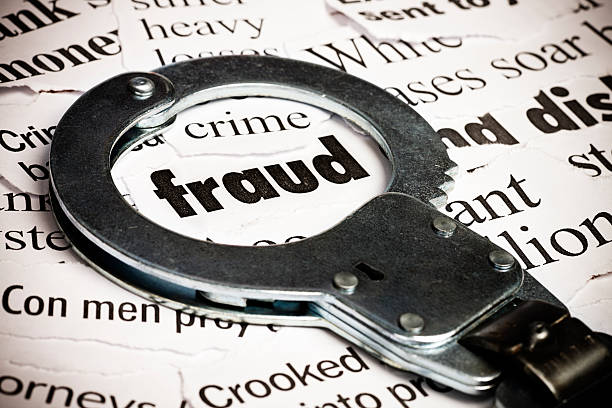
Every year, the global economy suffers greatly from fraud; more money is stolen all the time. Some of the biggest cases target people and processes. Also, fraudsters are devising more sophisticated means of accomplishing their mission, meaning that the fraud landscape keeps changing rapidly. Below are some of the biggest financial frauds in human history experienced in the corporate world.
The Enron (2001)
The years 1996 to 2001 were some of the best for Enron, as Fortune Magazine would name it “America’s Most Innovative Company” each year. However, why is it on the list of corporate fraud of great times?
This company went bankrupt in 2001. At the time when it was the 7th largest company in the US, on paper, the truth of the matter was quite contrary. It made itself appear more profitable than it was by using mark-to-market accounting. What about the losses? It hid them in shell companies.
At last, the truth was out. The results of the company’s actions were bad, with stocks dropping from $90 per share to 65 cents per share in 4 months. After the bankruptcy on December 2, 2001, financial criminal charges faced several Enron executives.
On the positive side, the company’s action led to the passage of the Sarbanese-Oxley Act in 2002. From the act, the accounting rules for public companies were stricter and anyone who broke them would face harsh penalties.
Read: Scammer Alin Iosif Cornea Stamati
The WorldCom (2002)
This was a Virginia-based telecommunications company. It was the second-best in America after its merger with MCI Communications. If you thought this was the last merger for the company, well, it had more appetite, which would later bring its downfall.
Its trial in taking over Sprint would have made it a historical merger at the time. Thankfully, this didn’t take place, thanks to regulators that blocked it. The regulators stalled out the company’s shares, and WorldCom’s CEO, Bernie Ebbers wouldn’t find it smooth. Over $365 million in funds for his side businesses were in loans backed by the company’s stock. As expected, desperation struck Ebber. In 2001, he had a trick; recording the company’s expenses and capital expenditure to a total of $3.8 billion.
Sadly, for him, in June 2002, his trick was discovered and by July the same year the company was bankrupt and the late CEO would receive a 25-year sentence in jail.

The Tyco (2002)
Tyco International was a New-Jersey-based blue-print security systems company. In 2002, the company’s CEO, Dennis Kozlowski, and CFO, Mark Swartz had siphoned more than $150 from the company using unapproved loans and stock sales. This led to the inflation of Tyco’s earnings by more than $500 million. This fraud was discovered after questions rose about some accounting practices in the company, and investigations were carried out.
In the end, both Swartz and Kozlowski were given an 8–25-year prison sentence.
Read: Scammer Anthony Di Cocco
The Volkswagen Fraud
Every vehicle, regardless of the brand, must meet certain emission standards, as required by most governments across the world. What’s more, testing is done to ascertain this. Unfortunately, the cost of adhering to these standards is high. It is, therefore, not a surprise when some vehicle company devices a plan to help it evade, and Volkswagen is a perfect example.
Thanks to technology, an idea was birthed. The company installed software in around 11 million of its cars that were diesel-powered such that when they were tested for emissions, it could change the results. As the company might have thought, this “plan” would help them evade the rules.
Unfortunately, that wasn’t the case. When it was all clear in September 2015, the company had to pay dearly for the “diesel dupe.” The fines were in the billions, they had to recall some of their vehicles. In the US alone, the fine was around $25 billion. Besides, the consequences of the actions saw the CEO, Martin Winterkorn resign and financial burdens struck, something that is still ongoing.
The Wells Fargo Fraud
Unlike the frauds committed by company executives, in Wells Fargo’s case, the employees were responsible. The company is also to blame for the high and impossible to meet sales goals it gave its employees. The quotas saw a rise in the company from 2002 to 2016. So, where did the problem come from?
The employees were given incentives to open fake bank accounts under customers’ names and this gave them huge short-term profits as they managed to open over 2 million fake accounts. Unfortunately, this move lost customers’ trust in the bank. Besides, the US Securities and Exchange Commission and the Department of Justice fined the company. Therefore, the move wasn’t worth it in the end.

The ZZZZ Best
This was a carpet-cleaning company. Barry Minkow, the founder, took it public at the age of 21. However, one thing didn’t add up; over 90% of the company’s customers were fake. Also, he had a scheme where he paid the older investors using the new investor’s money. This went on and he nearly went scot-free.
Best had a deal that would see it acquire its top rival, KeyServ. This would mean no more schemes and fake customers. However, before sealing the deal, Barry was exposed. The results? After 7 months of going public, ZZZZ Best’s value fell from $300 million to its collapse.
Read: A Day in The Life of Cryptocurrency Traders
The Wirecard Fraud
This was a German electronic payments company. It seemed to be having steady growth over a couple of years. Unfortunately, this wasn’t the case. In 2020, auditors noticed some questionable $2 billion in the company’s books. This money turned out to be non-existent. Chances are that the information Wirecard had been giving to its shareholders regarding its financials was false.
The CEO, Markus Braun, was arrested on June 23, 2020. Moreover, 2 days later, another blow was the company’s insolvency.
Conclusion
Frauds affect companies. The company executives or employees can be the culprits. The results or consequences of these actions are always dire. For instance, a company can go bankrupt, or insolvent, or the fraudsters can face long jail terms. On the positive side, though, such cases can make organizations and governments put strict measures, rules, and regulations, and anyone found to breach them faces the harsh consequences.
Other articles you might be interested in:
The Benefits Of Compliance Management For Your Business




